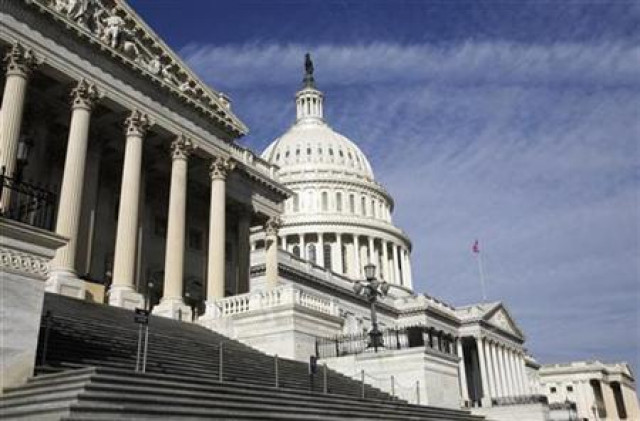Top US lawmakers reject Pakistan aid cuts in Davis feud
US senators stress on "working through the process"; say using US aid as leverage would be counterproductive.

And US Senate Foreign Relations Committee Chairman John Kerry, just back from a visit to Pakistan to discuss the fate of Raymond Davis, suggested a solution to the bitter diplomatic dispute over his fate could come within days.
"We just need to work through the process the way we are in the next days, and hopefully we get to a better place," Kerry said in what amounted to a plea for patience from increasingly angry colleagues. Asked whether his trip yielded progress toward a way out of the ugly diplomatic feud, Kerry replied "I think so," but brushed off questions about whether Davis might be sent to the United States for trial.
"I don't want to get into of the details of what may or may not occur, but hopefully we get a better resolution. And I just think we need to kind of let the process work," said the Democratic senator.
Democratic Senator Patrick Leahy, who heads the subcommittee that oversees US aid, sidestepped a question about whether lawmakers might cut aid to Pakistan but said "obviously this situation is something that I am closely looking at."
But Senator Lindsey Graham, the top Republican on Leahy's subcommittee, strongly warned against any rollback of assistance to Pakistan, citing the need for help in the war in Afghanistan and the hunt for suspected terrorists.
"Our relationship's got to be bigger than this," Graham said. "This is a friction point, this is a troubling matter, it doesn't play well in Afghanistan. We can't throw this agent over, I don't know all the details, but we cannot define the relationship based on one incident because it is too important at a time when we're making progress in Afghanistan," he said.
Despite the deep and growing frustration in the US Congress over the dispute, lawmakers were keenly aware of the need not to destabilise Pakistan at a time when Washington relies on Islamabad in Afghanistan and elsewhere.
"It doesn't seem like threatening to withhold aid from a volatile nuclear state with a wobbly civilian government is the best idea right now," said one congressional aide, speaking on condition of anonymity.
Republican Representative Kay Granger, who chairs the House subcommittee that disburses foreign aid, said she had discussed the case several times with the US ambassador to Islamabad and opposed cutting assistance to Pakistan.
"I am convinced it is counterproductive to use US aid as leverage and I believe it would hurt rather than help the situation to withhold funds," she said in a statement.
Representative Nita Lowey, the top Democrat on Granger's subcommittee, "has not threatened aid to Pakistan so as not to escalate the situation," said her spokesman, Matt Dennis. Still, "she feels very strongly that Pakistan needs to honor Mr Davis's diplomatic immunity and (acknowledge) he was acting in self-defence," said Dennis.
Many Pakistanis remain suspicious about Davis, who was arrested with loaded weapons and a GPS satellite tracking device, and who police have said is guilty of murder. US authorities have been vague about his role in Pakistan.
Davis allegedly gunned down the two Pakistanis on a busy street in the eastern city of Lahore on January 27. The government in Islamabad is under enormous domestic pressure not to be seen as kowtowing to US demands for Davis' release and has come under fire over how American officials are seemingly free to drive around with loaded weapons.
Prime Minister Yousuf Raza Gilani said Wednesday it would be up for a court to decide Davis's fate, but suggested a possible solution under Islamic law, under which a victim's family can pardon a killer in return for compensation.
But a Pakistan court on Thursday adjourned its ruling on whether Davis has diplomatic immunity - as Washington insists he does - until March 14. At the US State Department, spokesman Mark Toner told reporters: "Has this case made that ongoing bilateral relationship more difficult? Probably, yes. But we continue to work through this."



















COMMENTS
Comments are moderated and generally will be posted if they are on-topic and not abusive.
For more information, please see our Comments FAQ